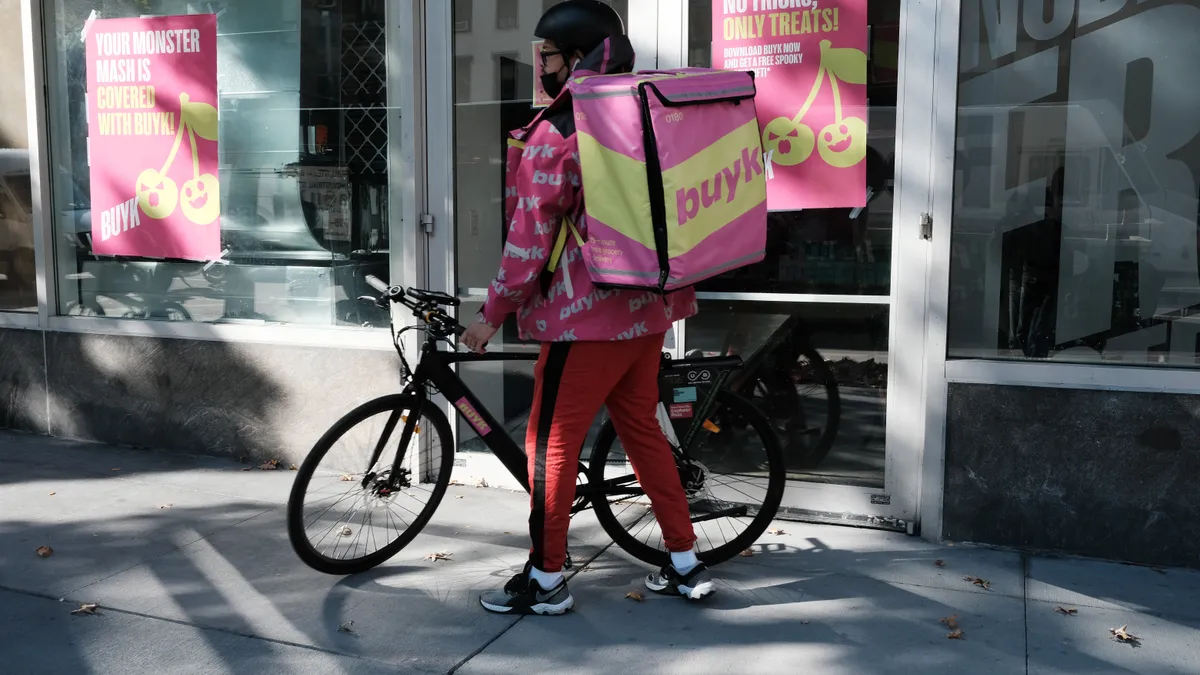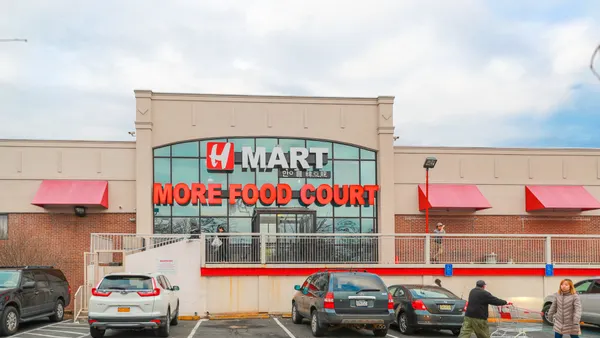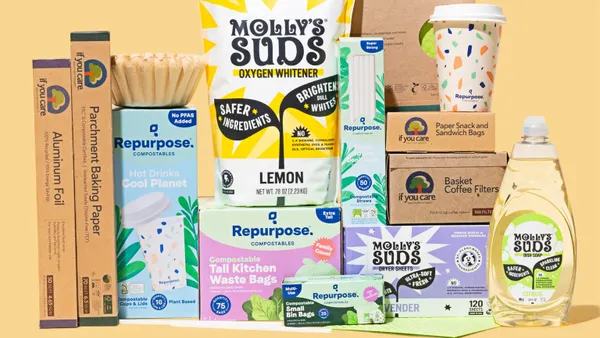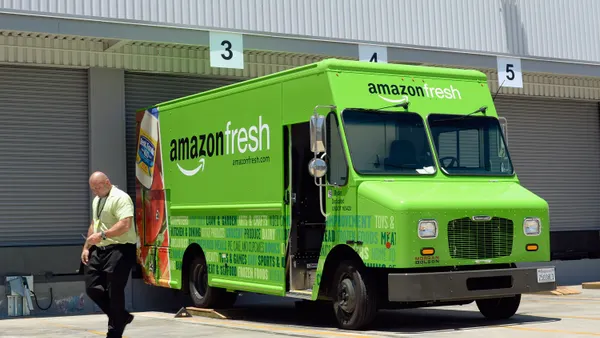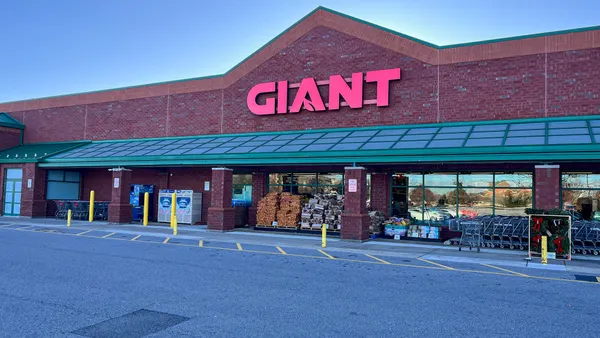Dive Brief:
- Ultrafast grocery delivery company Buyk announced on Thursday it has filed for Chapter 11 bankruptcy after ceasing operations at its 39 dark stores in New York City and Chicago on March 4. Fridge No More, which operated in New York City and Boston, tweeted last Friday that it had closed its business due to "growing competition and other industry related issues."
- Getir, which operates in nine countries, including the U.S., announced on Thursday it raised $768 million in a Series E round, bringing its valuation to $11.8 billion. The firm said it plans to use the funding to grow in countries where it currently operates.
- As the battle continues in the quick grocery delivery space, Celia Van Wickel, senior director of digital commerce at Kantar, said in an interview that the remaining emerging players should diversify their operating models as their cash-burning businesses look to survive.
Dive Insight:
The consolidation that experts have predicted would eventually whip through the ultrafast delivery space is now underway in the U.S.
Before filing for bankruptcy, Buyk “diligently explored all possible options and partnerships to restructure” the company, James Walker, Buyk’s CEO, said in a statement on Thursday. Buyk’s Chapter 11 announcement follows worker furloughs after the company ran into financing roadblocks when Russian restrictions in response to U.S. sanctions cut off funding from its founders, who are Russian. Walker previously told Grocery Dive in a statement that the founders were providing bridge funding to Buyk until it finished its next investment round.
Fridge No More’s shutdown happened after talks fell through with DoorDash to buy some of its warehouses, Bloomberg reported last week. The failed deal resulted from “a combination of operational concerns that arose in due-diligence and the cost of assessing exposure and potential risk around the startup’s ties to Russia,” unidentified sources told the business publication.
On Wednesday, Fridge No More tweeted that it gave perishable food to its employees and decided to donate dry goods to Ukraine.
Fridge No More is unfortunately closing our business, effective immediately. Read more: pic.twitter.com/wMgWHBBjHg
— Fridge No More (@fridgenomore) March 11, 2022
We’re getting a lot of requests about what happens with food in our stores. We distributed perishable food to employees. We also decided to donate dry goods to Ukraine ????????❤️
— Fridge No More (@fridgenomore) March 16, 2022
The shutdowns of Buyk and Fridge No More follow the reported closure of 1520 at the end of last year.
There are further signs that quick delivery is under considerable pressure in the U.S. Last summer, Gorillas paused its U.S. expansion plans to focus on growth in New York City. Jokr, which operates instant needs delivery in New York City and also operates in Latin America and Europe, has held talks to sell its New York operations, The Information reported in January. Jokr’s job page currently lists a “launch manager” role open in eight U.S. cities: Austin, Texas; Chicago, Dallas, Los Angeles, Miami, the Raleigh-Durham area in North Carolina; San Francisco; and Seattle.
A spokesperson for Jokr has not responded to a request for comment and further details on its future plans as of press time.
Van Wickel echoed other industry observers' predictions that the ultrafast grocery delivery space will consolidate further in the U.S. as players fight over market share. She could see a few emerging players remain, but noted that major players like Instacart and DoorDash are already primed to win the quick delivery space in large part due to their high consumer reach, she said.
While quick delivery has not hit mass market yet, consumer behavior is starting to favor instant needs shopping, Van Wickel said. Still, the emerging players pushing 15-minute delivery will need to alter their operations to survive, she noted.
“They are so reliant on this influx of cash to help try to build their models that they are not surviving, and so these companies are not running a sustainable model. They have to evolve over time to become sustainable," Van Wickel said.
Van Wickel gave the examples of Getir seeking franchisees for its dark stores outside the U.S; Gopuff offering foodservice and trialing stores; and Go Grocer relying on its stores to support rapid delivery. She also thinks firms that can expand beyond New York City into new markets and find ways to serve suburban areas will gain a competitive advantage.
"It may get away a little bit from 15 minutes to just offer quick delivery," she said. "We can see them starting to add more assortment, more variety, new categories to really expand the consumer occasions and reach opportunities."
Gopuff, the instant-delivery leader in the U.S. that offers occasion- and category-based impulse shopping, is a company to watch, Van Wickel said. Meanwhile, Getir has the user data and experience — it has nearly 40 million app downloads globally — to know how to navigate the space, Van Wickel said.



